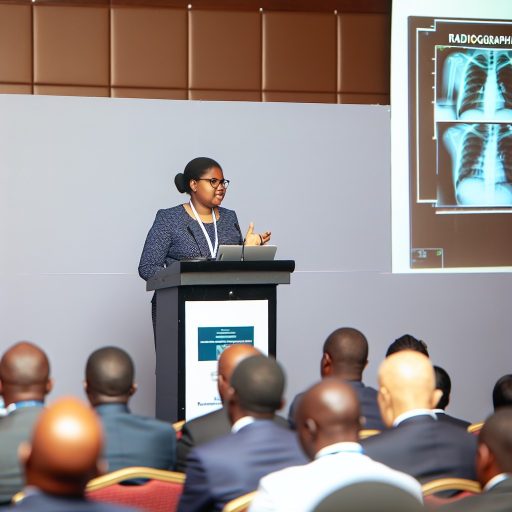Introduction:
This article will discuss the crucial role of parasite control programs in Nigeria.
It will focus on the impact of parasitic infections on public health and the economy.
Importance of Parasite Control Programs
Parasite control programs are essential in Nigeria to combat the prevalence of parasitic infections.
These programs aim to reduce the burden of diseases caused by parasites.
Some of these diseases include malaria, schistosomiasis, and soil-transmitted helminths.
Impact on Public Health
Parasitic infections have a significant impact on public health in Nigeria.
They lead to high morbidity and mortality rates, especially among vulnerable populations.
These populations include children and pregnant women.
Parasitic infections can result in chronic illness, developmental delays, and even death if untreated.
Impact on the Economy
Parasitic infections also have a negative impact on the economy of Nigeria.
The high prevalence of these diseases leads to increased healthcare costs.
Additionally, there is a loss of productivity due to illness and decreased educational attainment.
This, in turn, hinders the country’s overall development and economic growth.
Parasite control programs play a crucial role in improving public health.
They also contribute to boosting the economy in Nigeria.
It is essential to invest in these programs to alleviate the burden of parasitic infections.
This investment will ensure the well-being of the population.
The prevalence of parasitic infections in Nigeria:
- Statistics on the most common parasites found in Nigeria
- Discussion on the high burden of parasitic infections in the country
Statistics on the most common parasites found in Nigeria
Parasitic infections are a significant public health issue in Nigeria.
There is a high prevalence of various parasites.
- Malaria: Malaria is a mosquito-borne disease caused by the Plasmodium parasite. It is endemic in Nigeria, with millions of cases reported each year.
- Intestinal parasites: Intestinal parasites such as roundworm, whipworm, and hookworm are prevalent in Nigeria, particularly among children living in poor hygienic conditions.
- Schistosomiasis: Schistosomiasis, also known as bilharzia, is a parasitic disease caused by flatworms that live in freshwater snails. It is endemic in many parts of Nigeria.
- Onchocerciasis: Onchocerciasis, or river blindness, is caused by a parasitic worm transmitted through the bites of blackflies. It is a common disease in rural areas of Nigeria.
- Trypanosomiasis: Trypanosomiasis, also known as sleeping sickness, is a parasitic disease transmitted by the tsetse fly. It is a significant health problem in parts of Nigeria.
Discussion on the high burden of parasitic infections in the country
The high burden of parasitic infections in Nigeria is attributed to various factors.
- Poor sanitation: Inadequate sanitation facilities and poor hygiene practices contribute to the spread of parasitic infections in Nigeria.
- Low awareness: Many people in Nigeria are unaware of the risks posed by parasitic infections and how to prevent them, leading to high infection rates.
- Lack of access to healthcare: Limited access to healthcare services, especially in rural areas, hinders early diagnosis and treatment of parasitic infections.
- Climate conditions: The tropical climate in Nigeria provides a conducive environment for the breeding of parasites and their vectors, increasing the risk of infection.
- Low socioeconomic status: Poverty and lack of resources make it challenging for individuals in Nigeria to access clean water, proper sanitation, and healthcare, exacerbating the burden of parasitic infections.
Existing parasite control programs in Nigeria
As a country plagued by various parasitic diseases, Nigeria has implemented several programs aimed at controlling and eradicating these parasites.
These programs vary in scope and effectiveness, with some achieving notable success while others face challenges.
Overview of current initiatives and programs
- The National Control Program for Onchocerciasis: This program targets the control of river blindness, a parasitic disease caused by the worm Onchocerca volvulus.
- The National Malaria Control Program: Malaria is a major health problem in Nigeria, and this program focuses on preventing, diagnosing, and treating malaria infections.
- The National Lymphatic Filariasis Elimination Program: This program aims to eliminate lymphatic filariasis, a parasitic disease transmitted by mosquitoes.
- The Soil-transmitted Helminthiasis Control Program: This program targets parasitic infections caused by worms such as roundworm, whipworm, and hookworm.
Evaluation of the effectiveness of these programs
- The National Control Program for Onchocerciasis has been successful in reducing the prevalence of river blindness in many endemic areas.
- The National Malaria Control Program has made significant progress in reducing the burden of malaria through the distribution of insecticide-treated bed nets and antimalarial drugs.
- The National Lymphatic Filariasis Elimination Program has faced challenges due to poor coverage of mass drug administration and resistance to antifilarial drugs.
- The Soil-transmitted Helminthiasis Control Program has shown mixed results, with some areas reporting a decrease in parasitic infections while others continue to struggle with high prevalence rates.
While Nigeria has made strides in implementing parasite control programs, there is still much work to be done to effectively combat these diseases.
Continued funding, community engagement, and research are crucial for the success of these programs in the country.
Find Out More: Tips for Children’s Dental Care in Nigeria
Challenges in Implementing Parasite Control Programs in Nigeria
When it comes to implementing parasite control programs in Nigeria, there are several challenges that need to be addressed.
These challenges hinder the progress of controlling and preventing parasites in the country.
Lack of Funding and Resources
One of the major challenges faced in implementing parasite control programs in Nigeria is the inadequate funding and resources available.
Without sufficient financial support, it becomes difficult to procure necessary medications and conduct research.
It is also challenging to hire qualified staff to implement the programs effectively.
Limited Access to Healthcare in Rural Areas
Another significant challenge is the limited access to healthcare services in rural areas of Nigeria.
The majority of the population resides in these areas, where many people do not have easy access to healthcare facilities.
This makes it difficult to reach them with parasite control programs and treatments.
Cultural Beliefs and Practices Affecting Treatment and Prevention Efforts
Cultural beliefs and practices can also pose challenges to the implementation of parasite control programs in Nigeria.
Some communities may have traditions or beliefs that conflict with modern medical practices.
This makes it challenging to educate and gain the trust of the population to participate in treatment and prevention efforts.
In order to address these challenges and improve the implementation of parasite control programs in Nigeria, several strategies can be put in place:
Strategies to Overcome Challenges
- Increasing funding and resources allocation: The government and international organizations can work together.
- Improving access to healthcare services: Efforts should be made to increase the availability of healthcare facilities.
- Community engagement and education: Working closely with communities to understand their beliefs can help overcome cultural barriers.
- Capacity building: Training healthcare workers in parasite control methods can help increase program effectiveness.
- Research and innovation: Investing in research can help improve the efficiency and efficacy of parasite control programs.
By addressing these challenges and implementing these strategies, Nigeria can make significant progress.
This progress will ultimately improve the health and well-being of its population.
See Related Content: Physiotherapy for Post-Surgery Recovery in Nigeria
Transform Your Career with Expert Guidance
Get personalized mentorship consulting that’s tailored to your unique path. Our expert advice is actionable and exclusive.
Get StartedStrategies for improving parasite control programs:
Increased government support and funding
Government should allocate more resources to combat parasites effectively.
Funding should be directed towards research, prevention, and treatment programs.
Regular monitoring and evaluation of parasite control initiatives are essential.
Collaboration with international organizations and NGOs
Partnering with global health organizations can bring new perspectives and resources.
NGOs can provide on-the-ground support and community engagement for better outcomes.
Sharing best practices and experiences with international partners can improve program efficacy.
Education and awareness campaigns on parasite prevention
Promote the importance of personal hygiene and sanitation to prevent parasitic infections.
Training healthcare workers and community volunteers on parasite identification and control measures.
Utilize social media and other communication channels to educate the public about parasites.
By implementing these strategies, parasite control programs in Nigeria can become more effective and sustainable in the long run.
Working together with government support, international partners, and community involvement can lead to better outcomes in combating parasitic diseases.
Learn More: Impact of Sugary Foods on Nigerian Kids’ Teeth

Case studies of successful parasite control programs in Nigeria:
- Onchocerciasis Control Program: This program has significantly reduced the prevalence of onchocerciasis through mass drug administration.
- Malaria Control Program: Utilizing insecticide-treated bed nets and indoor residual spraying has greatly reduced malaria transmission rates.
- Soil-transmitted Helminth Control Program: Regular deworming of school-aged children has lowered the burden of soil-transmitted helminths in Nigeria.
Key factors contributing to the success of these programs:
- Effective collaboration: Partnerships between government agencies, NGOs, and international organizations have strengthened program implementation.
- Community involvement: Engaging communities in program planning and implementation has increased participation and compliance rates.
- Sustainable funding: Securing long-term funding sources has ensured continuity and scalability of the parasite control programs.
- Data-driven approach: Regular monitoring and evaluation using epidemiological data have allowed for targeted interventions and efficient resource allocation.
- Adoption of innovative strategies: Incorporating new technologies and approaches, such as mobile health units for remote communities, has enhanced program reach and impact.
See Related Content: Top Gynaecology Specialists in Nigeria
Importance of Scientific Research
Scientific research is essential for developing new treatments and prevention methods for parasite control.
Through research, scientists can better understand parasites, their life cycles, and how they interact with their hosts.
This knowledge is crucial for developing effective strategies to combat parasitic infections in both humans and animals.
Highlighting the Need for Continued Innovation
While progress has been made in parasite control, the battle is far from over.
Parasites are constantly evolving, developing resistance to traditional treatments, and finding new ways to infect their hosts.
Therefore, there is a need for continued innovation in parasite control strategies.
By investing in research and promoting innovation, Nigeria can stay ahead of parasites.
This will help reduce the burden of parasitic infections on its population.
Collaboration between researchers, government agencies, and healthcare providers is essential for developing and implementing effective parasite control programs.
Importance of Parasite Control Programs in Nigeria
Parasite control programs in Nigeria are crucial for addressing the health challenges caused by parasitic infections.
Implementing effective strategies such as mass drug administration and community health education can significantly reduce the burden of parasites.
Stakeholders including the government, healthcare providers, and non-governmental organizations must collaborate and support these initiatives.
Sustained efforts and resources will help Nigeria make significant progress in controlling parasitic diseases and improving the overall health of its population.
Summary of Key Points Discussed
- Parasitic infections are a significant public health concern in Nigeria.
- Parasite control programs play a crucial role in reducing the burden of parasitic diseases.
- Effective strategies such as mass drug administration and community health education are key components of these programs.
- Collaboration among stakeholders is essential for the success of parasite control initiatives.
Call to Action for Support
Individuals, organizations, and government bodies must continue to support parasite control programs in Nigeria through funding, advocacy, and participation in initiatives.
Working together, we can make a difference in combating parasitic infections and improving the health outcomes of the Nigerian population.
Additional Resources
WRAIR and partners develop Nigeria’s first-ever malaria slide bank …




